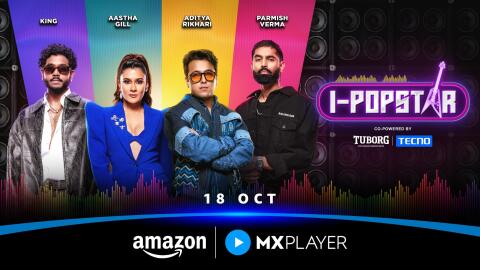Trust and security are at the heart of everything we do at Amazon. Recently, we've noticed an alarming trend: scammers are posing as Amazon representatives, often linked to our video streaming services Prime Video and Amazon MX Player, to trick creators, artists, and other business partners with fake contracts, partnership pitches or distribution deals.
These scams often look convincing, with professional emails, official logos, and even fake paperwork. Amazon urges creators and artists to stay alert as these scams grow more sophisticated.
Here are some ways you can identify these scams and efforts Amazon is undertaking to combat them.
How to identify these scams
These scammers are getting creative. Here's what to watch out for:
- Fake approval certificates/letters of intent for content acquisition or distribution on Amazon’s services: Creators and artists have reported receiving professional-looking documents that falsely promise that their content will be featured on Prime Video or Amazon MX Player. These documents often include forged letterheads and signatures designed to create a false sense of legitimacy.
- Counterfeit contracts with unauthorized or forged Amazon logos and signatures: Scammers have been creating fake contracts that mimic official Amazon paperwork. They often include unauthorized or forged logos, signatures, and formatting that closely resembles legitimate Amazon documents.
- Deceptive email addresses: These might appear similar to legitimate Amazon addresses at first glance. For example, instead of a genuine "@amazon.com" address, you might see something like "amazon-primevideo@gmail.com" or "amazonvideo.official@outlook.com".
- Imposters claiming to be Amazon executives: Scammers may pretend to be actual Amazon employees, sometimes using real names and titles they find on LinkedIn or other professional sites.
- Requests for payments or investments based on false approvals: A major red flag is any request for money based on these false approvals. Scammers might ask for "processing fees," "distribution costs," or "platform registration fees" to move forward with the fake deal.
Protect yourself: Your safety checklist
- Always verify every email address: Legitimate Amazon communications will always come from an @amazon.com email address. Be wary of addresses such as @prime-video.in, or @amazonmxplayer.com. Even a single character difference (like @amaz0n.com) indicates fraud.
- Reach out: When in doubt about any communication claiming to be from Amazon, contact Amazon directly through official channels rather than replying to the suspicious message. When in doubt, contact Legal-support@amazon.com directly.
- Remember: Amazon doesn't issue informal "approval letters" for content. Our content acquisition process involves formal contracts and discussions through verified channels.
- Be Payment-Smart: Amazon will never ask you to make payments based on approval letters or certificates. Content acquisition deals don't require creators to pay Amazon.
- Seek verification: Always verify the identity of anyone claiming to represent Amazon. Ask for official credentials and confirm through official Amazon channels.
- Due diligence: Take time to thoroughly verify before signing any contracts or making commitments. Verify party details independently, watch for inconsistencies, errors, or any pressure for urgent acceptance. If in doubt, consult a legal advisor before signing. Legitimate business deals allow time for proper review.
Taking action against fraud
Amazon takes these violations seriously and has zero tolerance for fraud. Our team investigates all reported incidents, and our legal team pursues appropriate action, wherever necessary, in such matters.
See something? Say something
If you encounter suspicious activity or receive questionable communications claiming to be from Amazon, report it immediately to Legal-support@amazon.com. Sharing detailed information, including screenshots, email addresses, phone numbers, and any documents received, helps Amazon track and stop these scammers.
In an ecosystem built on trust and creative collaboration, vigilance becomes everyone’s responsibility. By staying vigilant and informed, we can work together to keep our community safe from fraud.
Remember: when in doubt, reach out. We're here to help ensure every interaction with Amazon remains authentic and secure.













